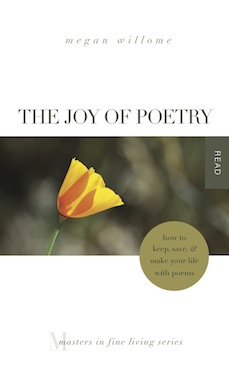Karen Rippstein is a certified poetry therapist, although she prefers other titles — poetry instructor, poetry facilitator, creative writing instructor. Her focus throughout her career has been on using journaling as a jumpstart to poetry.
She worked at New York Medical College for nineteen years and facilitated a creative writing club for the medical students. Learning how to write and how to teach others to write was something that interested her, so after becoming a grandmother, she became certified in poetry therapy.
“It was a late start, but I thought, ‘No, I have to do this,’” she said.
Rippstein likens the process of becoming a certified poetry therapist to getting a master’s degree. Her education included working with a mentor, studying other poets, and writing from their poetry. Through working with a Japanese poet named Hiroshi Tamura, she became familiar with various forms of Japanese poetry, including renga, in which a group of people take turns and work together to write a poem. (Fun fact: Haiku developed from the opening stanza of renga.)
The focus of Rippstein’s study was on journaling as a stimulus for writing poetry. For many years she was involved with the National Association for Poetry Therapy and has been published in its journal and in many other magazines and anthologies.
Whether Rippstein is teaching a continuing education class at Westchester Community College or a workshop at The Mariandale Center or another venue, her goal is to get people writing. She’s found that many people only write when they are participating in a group. Rippstein frequently uses journaling prompts, including visual ones, to stimulate her students’ poetry.
“Visual imagery is important for poetry. It’s no. 1,” she said, but she doesn’t stop with seeing. “Ask people to write about some of the other senses — textures, smell. I did a workshop where someone brought in all these spices.”
Rippstein might ask participants to write about a day with a relative or translate a recipe into a poem. If the page remains blank, Rippstein recommends making a list of whatever words spring to mind on a given topic and then journaling.
Another technique she uses is to write a poem inspired by a novel. She did this with The Hollywood Daughter, by Kate Alcott.
“My grandfather was a barber. My mother wanted me to get a haircut when I was little, and I didn’t want to,” Rippstein recalled. “The author writes about that as one of her experiences, and the experience she had is exactly what I felt. I thought, ‘I have to write a poem about that,’ and I did.”
Ekphrasis is one of her favorite forms of poetry, and she teaches art journaling as a way into writing ekphrastic poetry. Sometimes she introduces a piece of artwork (she’s partial to Edward Hopper), and other times she has the class start by making a collage.
“Cutting out pictures and words and putting them together in a notebook is so therapeutic because you’re sitting there and concentrating. You see a pretty image and see a story in it, or there’s turmoil and you need to cut that out,” Rippstein said. “You can also draw, doodling. When you doodle, you’re making images — write to that. Why can’t a poem come from that?”
But all of these ideas are suggestions.
“I tell the class, ‘You don’t have to do what I tell you,’” she said.
If students share their writing and desire feedback, Rippstein offers gentle critique.
“No red marks on the paper. If you want critiquing, let us know. If you don’t want critiquing, you can learn from what we are critiquing,” she said, adding that most feedback is about providing clarity.
If a participant doesn’t know how to approach a poem, Rippstein suggests starting by writing an essay, then paring it down.
“I tell them they can’t go over 1,000 words. They say, ‘This is hard,’ and I say, ‘Then do 700,’” she said. “If you practice writing poetry, you’re going to be a better creative writer, whatever genre you’re doing, because poetry helps you eliminate a lot of words.”
But the most important thing is simply to write.
“Start writing. Poetry is in there,” Rippstein said. “If you write daily in a journal, you have a poem.”
Photo by Simon Harrod, Creative Commons, via Flickr. Post by Megan Willome, author of The Joy of Poetry.
Browse more writing prompts
“Megan Willome’s The Joy of Poetry is not a long book, but it took me longer to read than I expected, because I kept stopping to savor poems and passages, to make note of books mentioned, and to compare Willome’s journey into poetry to my own. The book is many things. An unpretentious, funny, and poignant memoir. A defense of poetry, a response to literature that has touched her life, and a manual on how to write poetry. It’s also the story of a daughter who loses her mother to cancer. The author links these things into a narrative much like that of a novel. I loved this book. As soon as I finished, I began reading it again.”
—David Lee Garrison, author of Playing Bach in the D. C. Metro
- Perspective: The Two, The Only: Calvin and Hobbes - December 16, 2022
- Children’s Book Club: A Very Haunted Christmas - December 9, 2022
- By Heart: ‘The night is darkening round me’ by Emily Brontë - December 2, 2022


Laura Brown says
A day with a relative, you say?
.
She circumnavigated the long island
of the Eat’n Park salad bar
once (lettuces, tomatoes, peppers,
carrots, radishes, pickled beets)
and again (chickpeas, broccoli,
hard-boiled egg, three-bean salad)
and a third trip, no
mind to where she’d been, only
eyes for one more gem to set
in an already well-filled plate.
I think about that day
as I eat a winter lunch
of Yukon golds boiled with shallots,
steamed arugula and endive
blessed with Irish butter and the last specks
from the Pittsburgh Salt Co. pepper mill
served in a stoneware bowl
sitting on a spinet desk
two long-ago gifts from
and inexplicably outlasting
her.
Megan Willome says
Oh. My.
Thank you for this remembrance of this outing with your aunt and for all the details.
I hope it was good for you to write it.
Laurie Klein says
“one more gem … in an already filled plate …”
Laura, these details, this past meeting present tension of loss, that endearing glimpse of AJ, and you—thank you.
Donna says
Oh. Laura. I felt the last words in my heart.
Megan Willome says
The Manicure
by Karen Rippstein
(6/27/11)
I remember my mother leaving
the beauty parlor after a manicure,
driving us to a nearby deli,
splitting a chicken salad sandwich on rye.
Red polished nails shimmer
when she puts my half sandwich
on the extra plate,
when she unwraps paper from straws
for root beer floats.
Now, my mother asks me
to remove her ring,
the one on her right hand,
the one that slides off her knuckle.
I hold her hands,
give her a manicure,
sculpt each nail
into half moon crescents.
Her hand looks naked
without the ring.
I squeeze Ivory liquid,
add a drop of olive oil into a bowl,
soak her hands,
massage them,
coax life into them
before lymphoma claims her.
I dry off her hands,
help her back to bed,
prop pillows behind her.
Tubes of oxygen ease
her breathing into a steady rhythm,
a rhythm I try to find,
a poem to match the silence.
Laura Brown says
Ohhh.
There ought to be an anthology of poems about hands.
Megan Willome says
Agreed.
Thank you, Karen, for sharing this poignant poem about your mother.
Laurie Klein says
So simultaneously tender and practical.
The coaxing. The holding. The letting go.
Thinking about my mom …
Thanks, Megan and Laura
Donna says
This is so full of great ideas and techniques, Megan. Thank you!
Megan Willome says
Donna, it was so much fun to interview Karen, someone who’s so full of practical writing suggestions. I’d love to do a workshop with her.